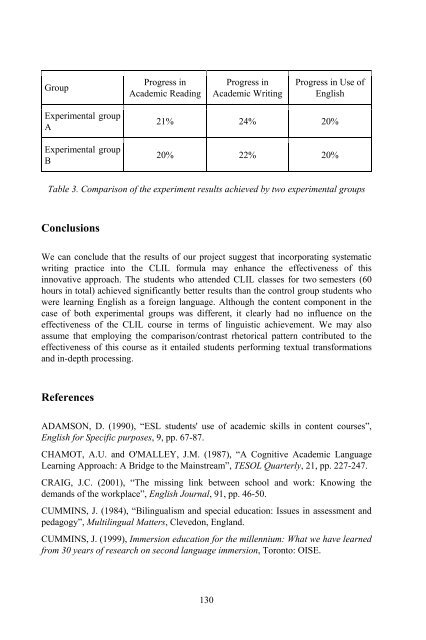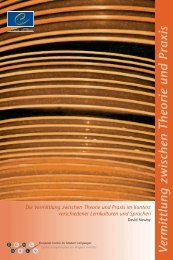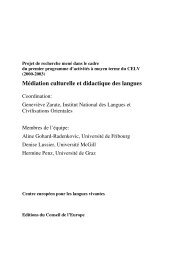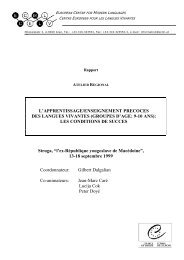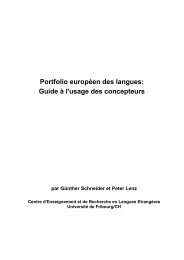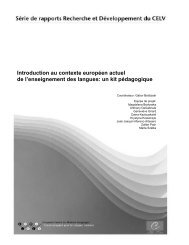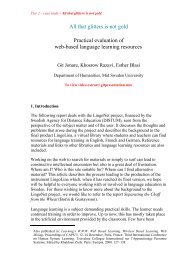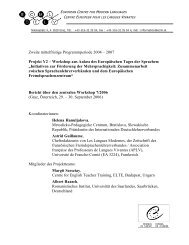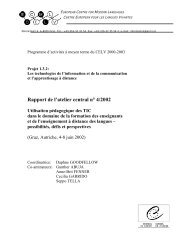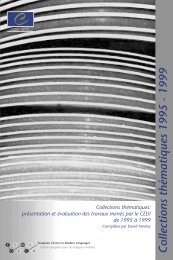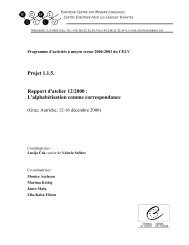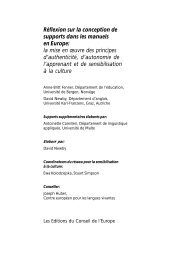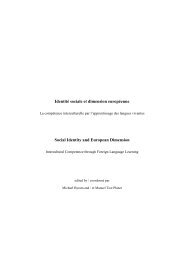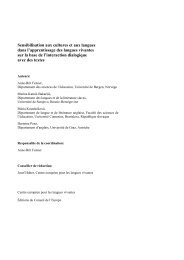cohesion - European Centre for Modern Languages
cohesion - European Centre for Modern Languages
cohesion - European Centre for Modern Languages
Create successful ePaper yourself
Turn your PDF publications into a flip-book with our unique Google optimized e-Paper software.
Group<br />
Experimental group<br />
A<br />
Experimental group<br />
B<br />
Progress in<br />
Academic Reading<br />
130<br />
Progress in<br />
Academic Writing<br />
Progress in Use of<br />
English<br />
21% 24% 20%<br />
20% 22% 20%<br />
Table 3. Comparison of the experiment results achieved by two experimental groups<br />
Conclusions<br />
We can conclude that the results of our project suggest that incorporating systematic<br />
writing practice into the CLIL <strong>for</strong>mula may enhance the effectiveness of this<br />
innovative approach. The students who attended CLIL classes <strong>for</strong> two semesters (60<br />
hours in total) achieved significantly better results than the control group students who<br />
were learning English as a <strong>for</strong>eign language. Although the content component in the<br />
case of both experimental groups was different, it clearly had no influence on the<br />
effectiveness of the CLIL course in terms of linguistic achievement. We may also<br />
assume that employing the comparison/contrast rhetorical pattern contributed to the<br />
effectiveness of this course as it entailed students per<strong>for</strong>ming textual trans<strong>for</strong>mations<br />
and in-depth processing.<br />
References<br />
ADAMSON, D. (1990), “ESL students' use of academic skills in content courses”,<br />
English <strong>for</strong> Specific purposes, 9, pp. 67-87.<br />
CHAMOT, A.U. and O'MALLEY, J.M. (1987), “A Cognitive Academic Language<br />
Learning Approach: A Bridge to the Mainstream”, TESOL Quarterly, 21, pp. 227-247.<br />
CRAIG, J.C. (2001), “The missing link between school and work: Knowing the<br />
demands of the workplace”, English Journal, 91, pp. 46-50.<br />
CUMMINS, J. (1984), “Bilingualism and special education: Issues in assessment and<br />
pedagogy”, Multilingual Matters, Clevedon, England.<br />
CUMMINS, J. (1999), Immersion education <strong>for</strong> the millennium: What we have learned<br />
from 30 years of research on second language immersion, Toronto: OISE.


